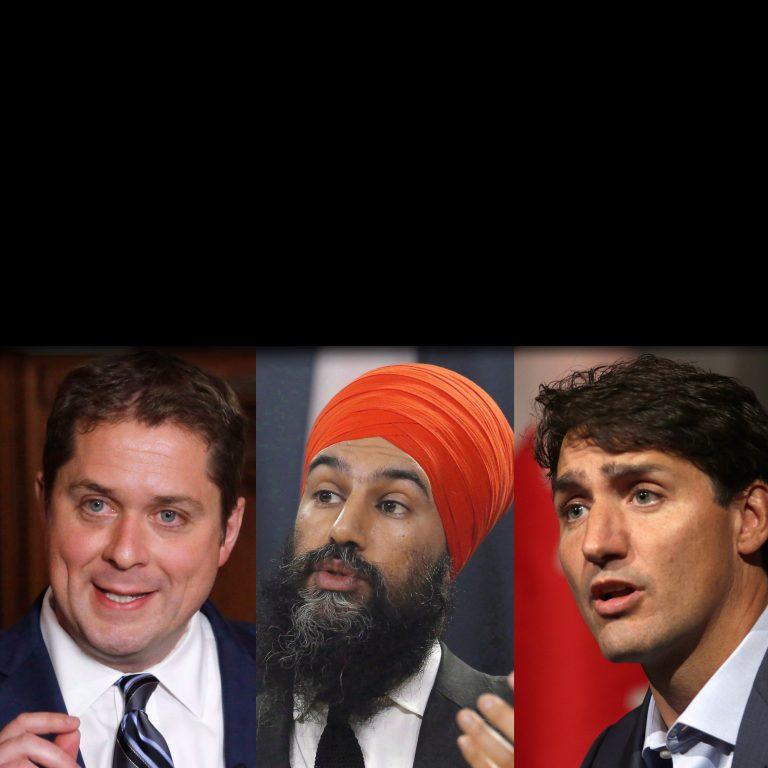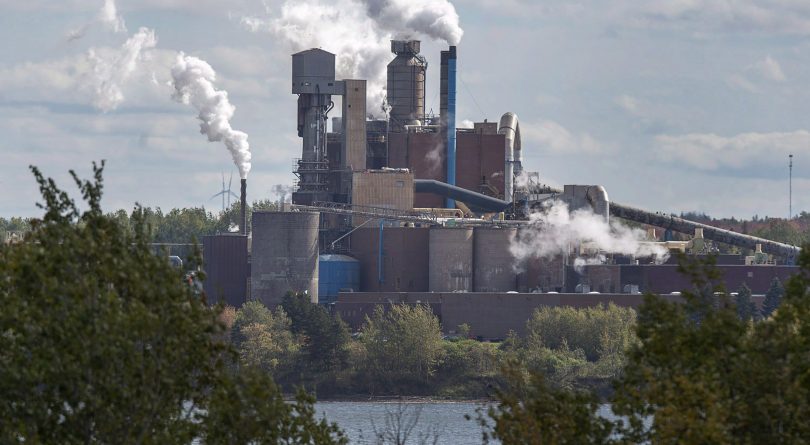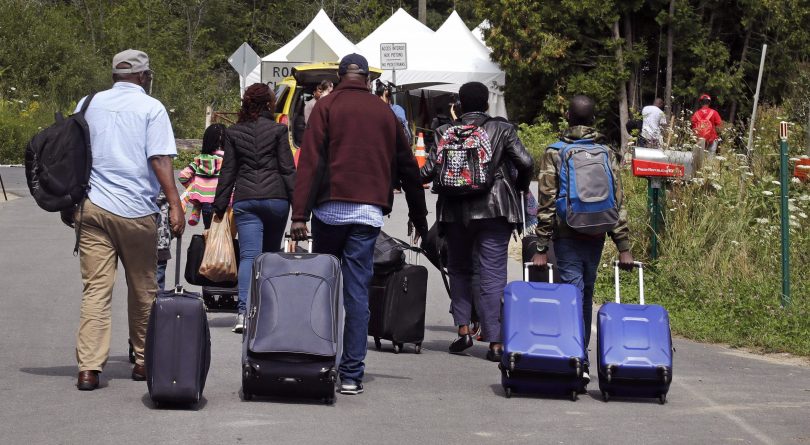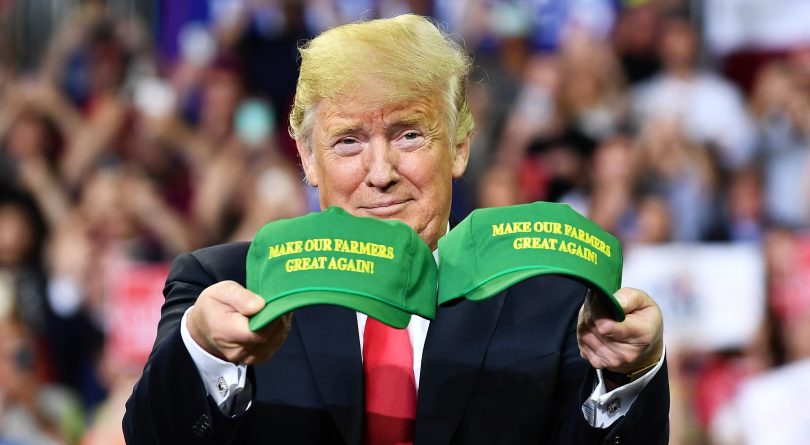Election 2019: The battle lines are already drawn
Three issues and one wild card will dominate the next election—and determine the fate of the Trudeau Liberals

Andrew Scheer, Jagmeet Singh, and Justin Trudeau. (Patrick Doyle/CP; Chad Hipolito/CP)
Share
The ways in which politicians signal which issues they plan to run on are pretty much tried and true. Deliver a speech, release a platform document, coin a slogan. So credit Andrew Scheer for mixing it up a little. In a late-summer visit to Danforth Avenue, the traditional hub of Toronto’s Greek community, he spelled out “the Carbon Tax!” in black marker on a white plate, donned safety glasses, and smashed it in a gleeful if somewhat cheesy performance of the traditional Greek celebration.
Scheer’s predecessor as federal Conservative leader was a little less original, yet just as pointed, in identifying what seems guaranteed to be a hot issue in the federal election scheduled for fall 2019. In a speech last spring, Stephen Harper offered a bring-it-on response to the push by Prime Minister Justin Trudeau’s Liberals to make a national price on carbon the centrepiece of their climate-change strategy. “Let the other guys do a carbon tax,” Harper said, “because we can all win the next federal and provincial elections on that issue alone.”
It didn’t take shattered tableware or an ex-prime minister’s prognostication to convince the pollsters and political insiders interviewed for this article. Carbon pricing stood out as the policy debate from this fall that they most often predicted would remain hot for next fall’s election. That was true even before a blockbuster decision handed down by the Federal Court of Appeal on Aug. 31 heated up the environment-and-energy file even more, by forcing the Trudeau government to launch further review of Indigenous and environmental issues surrounding the Trans Mountain pipeline expansion.
Beyond carbon pricing, though, there’s sharp disagreement about the likely weight any of the other emerging issues will carry in the campaign—notably immigration and border-crossing asylum seekers; handling Donald Trump when it comes to trade, tariffs and the future of NAFTA; and maybe expanding universal health care with some form of prescription drug coverage.
Gaming out how much political weight to assign any issue is notoriously tricky. Most political strategists say elections are won or lost on the stories leaders tell about who they are and what those narratives convey about how they would govern. Still, they have to argue about something. This is the short list of issues shaping up as testing grounds on which Trudeau, Scheer and the NDP’s Jagmeet Singh will try to present the most electable versions of themselves to voters about a year from now.

Carbon tax: Back in late 2016, Trudeau struck a deal with most provinces to discourage fossil fuel burning by imposing a price on carbon emissions, the main culprit in global warming. Under the plan, provincial governments can devise their own schemes, but whatever taxes or emissions-trading systems they create must impose a price of no less than $10 per tonne of emissions starting next year, ramping up to $50 in 2022. Provinces had until Sept. 1 to outline their plans to the federal government. The feds planned to review them through the fall, in time to put taxes or emissions-trading systems into effect early next year.
But if those provincial plans don’t pass muster with Ottawa, the federal Liberals reserved the right to impose their own carbon tax, although they pledge to send the revenues back to the provinces where they are collected. Saskatchewan opposed the pan-Canadian pact from the outset, and Doug Ford, Ontario’s new Progressive Conservative premier, pulled his province out soon after beating the previous Liberal government in this past spring’s election.
Alberta Premier Rachel Notley will continue to collect the provincial carbon tax she implemented last year. However, angry over that court ruling on the Trans Mountain project, which will seriously delay the expansion of the pipeline between Alberta and a B.C. coastal tanker port, she suspended plans to increase the tax in line with Ottawa’s carbon pricing plan. “Without Alberta,” Notley fumed, “that plan isn’t worth the paper it’s written on.”
READ MORE: The 2019 election will be about who’s the right kind of Canadian
At first glance, all this seems to create a huge opening for Scheer. He will be able to not only run against a tax next year, but also promise to lift one that Ottawa will already be collecting in several recalcitrant provinces. There’s a key wrinkle, though. Last spring, federal Environment Minister Catherine McKenna gave herself the power to return the carbon-tax revenue directly to taxpayers. That opens up the prospect that, well before the 2019 election, Canadian voters in major provinces will be receiving carbon-price rebate cheques directly from the federal government.
David Herle, co-chair of former Liberal premier Kathleen Wynne’s losing campaign against Ford, says Trudeau would be in trouble if he had to run on the phrase, “We’ve got to save the world”—especially as contrasted against Scheer saying simply, “We don’t want to raise taxes.” But the prospect of carbon-tax rebate cheques being delivered before the election potentially changes that equation. According to Herle, Trudeau’s Liberals “are going to have to find a really innovative and attractive way of getting that money back into [voters’] hands.”
The Ottawa-based polling firm Abacus Data tested public opinion on carbon pricing in a survey last winter for Canada’s Ecofiscal Commission, a group of economists who promote sensible economic solutions to environmental challenges. The poll found that 37 per cent of Canadians prefer politicians who would price carbon, 26 per cent oppose them and 37 per cent said the issue wouldn’t influence how they vote.
Among those opposed, however, 63 per cent said they would be more likely to support carbon pricing if government gave the money raised back to individuals. Abacus pollster David Coletto says rebates won’t sway Conservative “partisans who hate a carbon tax,” but would build support among voters who just want assurance they won’t be hurt financially. “In my view,” Coletto adds, “it kills the idea that it’s a tax grab.”
But Tory strategists question the potency of rebate cheques. Conservative MP Mark Strahl recalls how the Harper government boosted the old Universal Child Care Benefit just before the 2015 election but lost to Trudeau anyway. “People received cheques in the mail just before the election was called, and it didn’t have an impact,” Strahl said in an interview. “Once you have it in hand, it’s sort of, ‘Thanks for that, now let’s talk about the future.’ You can’t buy people with rebate cheques.”

Immigration: After Harper lost the 2015 election, conventional wisdom held that he had bungled a set of issues lumped under the heading “identity politics.” He promised an RCMP “barbaric cultural practices tip line,” proposed banning face veils like the niqab at citizenship ceremonies and beyond, and didn’t match Trudeau’s empathetic tone on taking in Syrian refugees. Chris Alexander, Harper’s former immigration minister, who lost his Ontario seat, said afterwards, “We were perceived as somehow an unwelcoming party.” He said that wasn’t fair, “but in political terms, it was a disaster.”
Are the Conservatives courting disaster again? The party is sustaining its attack on the Liberals’ handling of border-crossing migrants. The Tories call the situation a “crisis,” although with only about 50 asylum-seekers crossing a day this summer, mostly in Quebec, the sheer numbers seem underwhelming. Still, a recent Angus Reid Institute survey found that two-thirds of Canadians agree that “crisis” is the right word, and by a wide margin feel Scheer would handle it better than Trudeau.
No wonder the Tories are eager to stay on this file. Yet they’re also attuned to the pitfalls. MP Michelle Rempel, Scheer’s immigration critic, insists Liberals shouldn’t mix up her criticism of their border management with issues of race and diversity. “Debate on this issue has become so polarized, and today I just want to say, stop it,” Rempel recently told reporters. “Stop calling people un-Canadian, stop casting aspersions. Recognize that there are significant concerns that Canadians have, recognize that there are serious flaws in our system, and let’s start fixing it.”
There’s little chance, however, of a dispassionate debate about, say, border controls and setting targets for total numbers of immigrants. For conservative populists everywhere—from Trump’s America to Britain in its prolonged Brexit agonies, to European countries coping with waves of migrants from Africa and the Middle East—immigration anxiety is a potent preoccupation. Scheer must decide if the issue, as quantified by Angus Reid, is a winner for him, or if the cautionary tale of Harper’s 2015 bid to harness identity politics shows that the downside is more dangerous.

Pharmacare: Expanding universal health care to pay for at least some prescription drugs—maybe all—hasn’t sparked anywhere near the political fireworks of issues like the carbon tax and irregular border crossing. Yet the concept of pharmacare is big enough, and health care in general is important enough to many Canadians, for this sleeper policy file to have potential. It’s also a rare issue on which the main political tensions are between the governing Liberals and Singh’s third-place New Democrats.
Indeed, by the time the 2019 campaign rolls around, fully framed and contrasting pharmacare plans from the Liberals and NDP might be in the window for voters. B.C. MP Don Davies, Singh’s health critic, says the NDP plan is clear already: full coverage by bringing drugs under the Canada Health Act. “We’ve put drug coverage on the national stage as never before,” he says. “I’ve rarely seen an issue that generates such broad and deep consensus.”
The Liberals see momentum behind the idea, too. They’ve assigned Eric Hoskins, Ontario’s former health minister, to study the options. But, last winter, Finance Minister Bill Morneau suggested something less than universal coverage makes sense. “We need a strategy to deal with the fact that not everyone has access,” Morneau said. “And we need to do it in a way that’s responsible, that deals with the gaps, but doesn’t throw out the system that we currently have.”
RELATED: How Canada’s growing anti-abortion movement plans to swing the next federal election
Davies says Canadians already understand and value universal coverage. “If the Liberals go with a fill-in-the-gaps system, they will have to explain it,” he says. But two senior Liberal insiders both say they doubt Singh will be able to campaign effectively on the issue if he’s forced to try to persuade voters to parse the differences between substantial NDP and Liberal proposals.
Still, the stakes are high enough that some voters will pay attention. The sorts of drugs that might be covered already cost Canadians more than $20 billion, although that spending is spread across company drug plans, partial provincial plans and spending by individuals. A Parliamentary Budget Office study said consolidating all that under a national program would save several billion overall. But building public support for a whole new system under which companies—and perhaps individuals—would be taxed to pay for it would be a major political test.

Trump: Arguably Trudeau’s strongest moment on the national stage so far this year came when he clashed over tariffs with U.S. President Donald Trump in June. Trump had slapped a 25 per cent tariff on steel and 10 per cent on aluminum from Canada, Mexico and the European Union, and Trudeau responded with retaliatory tariffs on U.S. imports. Asked about the trade feud at Charlevoix, Que., after the G7 summit there, Trudeau said Canadians “will not be pushed around.” Trump threw a Twitter tantrum over “Justin’s false statements,” and his surrogates went on the attack against Trudeau on TV talk shows.
Canadian public opinion, not surprisingly, rallied behind Trudeau. The political response was telling. Even Conservative and NDP MPs voted to “stand in solidarity” with the Liberal government against “disparaging and ad hominem statements by the U.S. administration.”
The clear lesson: Trump is deeply unpopular in Canada, giving Trudeau a lot of leeway in handling trade issues, including the renegotiation of NAFTA, foisted on Canada and Mexico by the U.S. president, and still unresolved when this story went to print.
Given the enormous shadow Trump casts, Tories and New Democrats have to worry if Trudeau can lose in any scenario where he’s seen as championing Canada against the U.S. president. Secure a reasonable NAFTA deal? Victory despite Trump. Fail to do so? Well, this president is beyond reasoning. “People’s natural inclination is to blame Trump before they would blame anyone else,” Coletto says. “Even a significant number of Conservative voters are inclined to say, ‘No, no, this is Trump.’ ”
READ MORE: It’s not all about their base: Canada’s 2019 election will hinge on these voters
Shachi Kurl, executive director of the Angus Reid Institute, says the only way the trade file might hurt the Prime Minister is if an escalating trade war with Washington starts to translate into palpable economic pain, especially lost jobs. Trying to prevent that by capitulating, though, might be even worse. A senior Liberal government official said anti-Trump sentiment runs so hot in Canada that it would “prevent any responsible government, be it us or anybody else, from conceding any of the things that Donald Trump wants them to concede.”
So Scheer is carefully calibrating his Trump talking points. In a major speech to a Conservative convention in Halifax this summer, he said, “Donald Trump has been crystal clear all along that he’s out to cause us pain and to steal our jobs,” before quickly moving on to saying Trudeau “has embarrassed Canada and has failed to open new markets.”
Acutely aware that Trudeau shone in Charlevoix, Scheer’s strategists are eager for Canadians to instead recall how, several months earlier, the Prime Minister looked silly on an Indian trip replete with costumed photo ops. Thus Scheer’s own nine-day India trip planned for this October. Oddly, India is being set up as a backdrop for which leader is best equipped to face the threat in Washington. One way or another, Trump will factor heavily in Canada’s 2019 election. “It may not be explicit,” Coletto says. “You might not see ads saying, ‘Andrew Scheer can handle Donald Trump,’ or vice versa, but it might be implicit in how we evaluate our leaders.”
It’s impossible to predict a year out how any of these files will change before the campaign. And skeptics will say Canadian elections aren’t about the issues anyway—they’re about personalities.
Maybe. But any of these four files might claim a sizable share of the campaign spotlight. They span the direst environmental challenge ever to confront humanity, the most fraught questions of Canadian identity, a potentially sweeping new social program and managing the country’s dominant bilateral relationship in the time of an un-ignorable president. If the 2019 campaign ends up seeming shallow, it won’t be for a lack of chances to go deep.